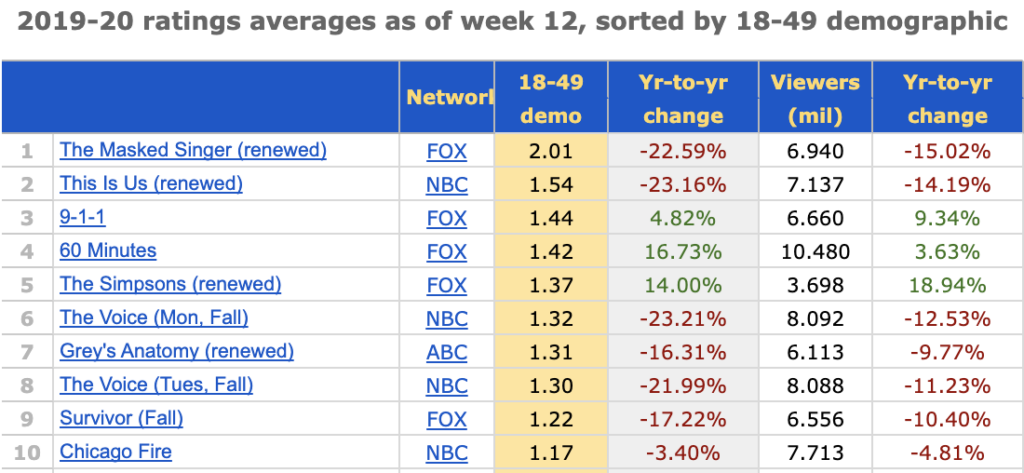Last week, Christer Björkman,‘s comments from a Swedish podcast about the in-development American Song Contest (working title) surfaced on many fan sites. Since the Tel Aviv press conference where the EBU announced that a plan and license were in place to create an American version of the competition, much of the fandom has been abuzz of even the notion of such a concept.
Of course, the competition from other music competitions on television is great. But competitors like American Idol are getting old and watered down, Christer says. American Song Contest would be something new, with new music being performed instead of covers.
– Christer Björkman, ESC producer
There are lots of challenges in pulling this feat off – a concept is not immediately established. After Christer confirmed that a fifty states approach might be the path forward, one might wonder – but can enthusiasm be generated this way and who might administer how each of the States determines their representative. American audiences have not bought into the European version of the show whenever the opportunity has presented itself – so how could this all work? This is all after we first admit that even what is meant by an American Song Contest doesn’t immediately equate to a US-only concept to many fans.

More sobering news for the contest organizers is that the legion of fans of Eurovision in the US although small are passionate. They are devoted enough in their support that they worked setting up virtual private networks (VPNs) across bars from coast to coast just to view the 2019 contest from Tel Aviv since there was no U.S. broadcaster of the event. They are also devoted enough to travel to the events themselves. I have been surprised at the number of Americans I have encountered at live events.
And so with all this passion comes a great amount of scepticism around how the brand will be treated by trying to fit a six-decade cultivated concept into an unknowing American audience with challenges of trying to create a national like identity at the state level, a lack of history and did we mention time zones? Part of the allure of Eurovision is the way all countries vote and seeing who votes for who all in real-time. Fans wonder if it will be easy to get Hawaii to vote and pay attention to something going on somewhere six hours away? It’s possible in Europe because of the deep history that exists but to reach that level of coordination will take. Fans also wonder what this will do for the brand they have connected with? Will it cheapen the tradition of Eurovision to know that there is a lopsided, unappreciated version going on in America?

The viewing figures in the U.S. for previous Eurovision events present both an opportunity and a risk. With such little viewer interest, there is a real risk that it falls flat. A total of 74,000 viewers tuned in for 2018’s grand final, up 10k from 2017’s viewing figure. In 2016 when Justin Timberlake performed at the interval, undoubtedly bringing with him some of his American fans the figure was 52,000. All of these are easily less than one-tenth of one percent of the main target audience.
With shows like American Idol, America’s Got Talent and The Voice all in easy reach – is there any hope that a broadcaster is going to be enthusiastic in finding room for this delicate translation of a concept? And yet the opportunity here is that Eurovision for being the most-watched music event on Earth is so unrecognized in the U.S. Could it take an attempt of any magnitude to simply convert a few more followers to the Eurovisions of the 2020s?
In my research to find some analytical data on what could be a harbinger of success for this project – I have observed the phenomenon of Fox’s ‘The Masked Singer’.

This franchise features celebrities in head-to-toe costumes and face masks which conceal their identities from other contestants, panelists, and an audience. It looks and sounds ridiculous. The show debuted on January 2, 2019.
Just four weeks later, Fox announced it had renewed the series for a second season. A few months later, Fox announced that the second season would premiere in fall 2019, and that it had ordered a third season, which will premiere following Super Bowl LIV on February 2, 2020.
This is significant. Not only did this show catch on quick with the fans and network – but its future is being posed in conjunction with America’s most-watched television event, the Super Bowl. If Fox is willing to go the route of awarding a musical reality show to have the biggest lead-in of a live viewing audience of the year – it must be for a good reason. Well look no further than the 12 week average of the biggest shows in the U.S. and you’ll see why.


The key marketing 18-49 demographic in play shows ‘The Masked Singer’ way out in front of its nearest competitor.
This is good for the EBU attempt at an American Song Contest. Not only has ‘The Masked Singer’ reaffirmed that a musical reality show hit can happen in a hurry in the U.S. but it’s working as a complement to shows like American Idol and The Voice. By that I mean, the viewers of one of those shows are likely to be viewers of the other two and vice versa.

Conclusion – fans of Eurovision might not be ready for an American spinoff, but America appears ripe for a fresh reality music show as The Voice, Idol and America’s Got Talent have passed their prime. The Masked Singer successfully exploited the landscape for now – but when that novelty wears off, could Christer’s American contest be the next big thing? In terms of American viewership, the only way is up. While the concept and brand reputation might be at risk there is little downside from trying to explore the market in a more meaningful way than the failed attempts of engaging from Europe.

